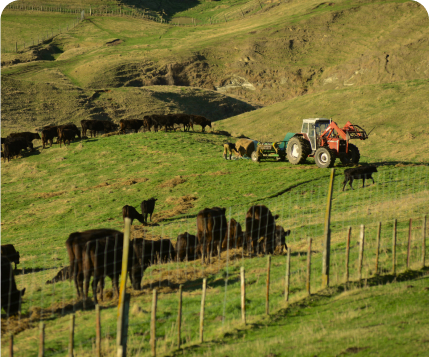When the results of the peer review panel into OverseerFM were released in August, it raised some debate about how and when OverseerFM should be used. The review panel identified shortcomings with Overseer and concluded that it did not have confidence in its ability to estimate nitrogen lost from farms in its current form.
Overseer Limited welcomes all scrutiny and feedback but we consider that the review judged OverseerFM to have failed at something it was never designed to do. OverseerFM is a farm planning and management tool, which helps farmers and growers to understand the risk of nutrient loss from different management approaches in their specific situation. OverseerFM does not measure nutrient loss in real-time, nor does it consider all sources of environmental losses in its assessment and it was never designed to do this.
The peer review saw this as a weakness, but our independent science advice is that Overseer’s approach of estimating cumulative annual nutrient losses is suitable to support the sort of scenario testing OverseerFM is most often used for, and which is of greatest value to regional councils in assessing farm plans.
Put simply, it’s like being judged as failing in the high jump when we were competing in the shot-put.
What we know is that OverseerFM is proven in its ability to support farmers and growers make more informed decisions about their nutrient management practices that help improve their environmental performance. OverseerFM enables farmers to retain some ownership of the farm management decisions that best suit their business and situation, while delivering better environmental outcomes – something which input rules could never deliver.
It’s a sophisticated indicator of risk that considers the reality of a farm situation. Feedback from many regional councils, industry groups such as Beef + Lamb New Zealand and DairyNZ, farmers, scientists and rural professionals all back this conclusion.
We share the concerns that have been expressed that questioning the effectiveness of OverseerFM creates a real risk that some farmers may use this as an excuse to pause or stop efforts to clean up our waterways. That’s why we welcomed the Government’s assurances that Overseer will be supported while the policy settings are clarified. We are awaiting more information from the Government on the timeline for assessing options including a risk-based index, a next-generation Overseer to address the panel’s concerns, greater use of controls on practices to manage nitrogen leaching and/or potentially longer-term developing a new approach altogether.
Environment Minister David Parker has said that regional councils can proceed with developing plans on the basis that nutrient loss estimation and risk assessment tools will be available for the preparation of those new plans. Regional councils have said that any new tools will have to be delivered within 12 months to make sure councils are able to meet the December 2024 deadline to notify plans that align with the National Policy Statement for Freshwater Management. We stand ready and willing to help.
We are committed to continuing to develop OverseerFM, while continuing to support regional councils in their efforts to ensure farmers manage their farm systems in a way that protects our environment and maintains our global reputation as sustainable producers. OverseerFM’s strength is that it provides the agricultural sector with a common platform for engaging on farm nutrient management. This allows councils to leave on-farm management decisions in the hands of experts, while having confidence in the direction of travel, underpinning the effects-based approach to managing resources.
The Waikato, Manawatū-Whanganui, Bay of Plenty, Hawke’s Bay and Canterbury regional councils are using OverseerFM in various ways to estimate on-farm nutrient loss, consider and grant resource consents, and assess compliance. We should all acknowledge that the methods by which Overseer has been included in some plans is what has driven much of the discontent and concerns about the software. In this area, the RMA process has been problematic.
Overseer Limited has worked alongside regional councils to ensure that they have extensive guidance and an understanding of how to apply OverseerFM well – to achieve the farm management decisions which deliver better environmental outcomes. Much of the work we have done in the last couple of years has been focused on reducing costs in the system to ensure that use of Overseer is a cost-effective option. As regional councils consider their use of OverseerFM as one part of their toolkit to drive down nutrient losses as part of their regional planning, we have looked at the results of existing use particularly in those areas with longevity and stability of their policy settings. We are seeing evidence that this approach has been working.
Where OverseerFM has been used consistently over a period of time, such as in Canterbury, we are seeing improved environmental outcomes. Even if freshwater quality will take some time to recover, we are seeing farming practice change and the corresponding N-loss change in a way which aligns with known science.
Overseer has also been used to help clean up Lake Taupo by assisting Waikato Regional Council in the creation of higher levels of farmer engagement, on-farm innovation, farm de-intensification, change to dry stock practices, use of more plantain and the conversion of some land to trees.
These councils and others have worked hard to make the best use of the tools currently available to them. There is no widely-available, affordable alternative to OverseerFM for modelling nutrient management outcomes.
OverseerFM continues to do the job it always did. So councils, farmers and rural professionals can keep using it – consistent with our guidance – to understand the direction of travel for farms, the impact of practice changes and to inform farm plans.
This article appeared in New Zealand Local Government Magazine, October 2021
